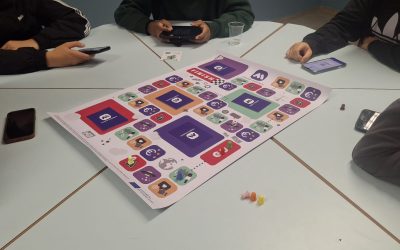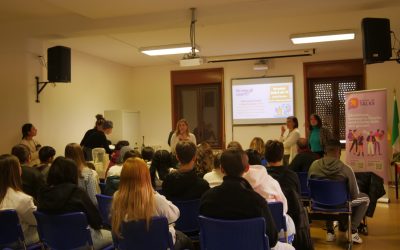The approval by the Culture Committee of the Italian Chamber of Deputies of amendments to the Provisions on informed consent in the school environment (C.2423) that extend the ban on educational activities addressing sexuality and emotional education to lower secondary schools, while introducing obstacles to implementing Comprehensive Sexuality Education in upper secondary schools, represents a serious and worrying step backward for the education system in Italy, and yet another step forward for patriarchy.
Denial of rights, equality, and prevention
The new provisions risk institutionalising censorship and inequality, denying the new generations access to comprehensive, scientific, and inclusive Comprehensive Sexuality Education, as recommended by UNESCO and WHO.
The amendment extends the ban on educational activities on sexuality topics up to lower secondary school, thus excluding young people precisely in the age groups where prevention, self-knowledge, and body awareness are most effective and necessary.
These conditions not only delay or hinder interventions, but risk resulting in actual preventive censorship of educational content. The so-called “informed consent” in practice represents a disguised ban: behind the term consent lies exclusion.
Requiring prior parental authorisation to participate in Comprehensive Sexuality Education programmes introduces deep discrimination:
- those who do not get parental consent are excluded from a fundamental right;
- it creates a non-equitable education system, denying equal learning opportunities;
- it increases the stigma that talking about sexuality is inappropriate or dangerous.
Besides this, students and young people have been completely absent from the discussion and drafting of the provisions: their voices, needs, and experiences have been ignored, in open contradiction with the principles of participation and listening that should guide every educational process.
The selection process of expert educators now requires multiple levels of approval. While the presence of qualified professionals is essential to effective Comprehensive Sexuality Education, as recognised by international bodies, in this context, the additional bureaucracy increases the risk of censorship and acts as a deterrent against including content seen as sensitive or linked to Comprehensive Sexuality Education.
Decades of international studies (UNESCO, WHO, IPPF) have shown that Comprehensive Sexuality Education does not lead to earlier sexual behaviours but rather reduces early pregnancies, sexually transmitted infections, and gender-based violence, while promoting mental health and healthy, respectful relationships.
Early relationships and emotional experiences, as young as between 0 and 6 years old, shape children’s sexual and emotional development. During childhood, children learn essential concepts such as body awareness, privacy, consent, and trust toward adult figures of reference. It is about building respect, safety, and self-awareness.
Excluding young people from targeted educational pathways means leaving room for misinformation, prejudice, and toxic relational models – often learned from peers or media – that are increasingly risky in a digital world that adults understand less and less.
Talking about body, consent, respect, and emotions is not propaganda: it is prevention and public health.
A measure in contradiction with European and international standards
Italy remains one of the few European countries that not only lacks mandatory sexual education but also, now, actively denies and obstructs it. Until now, school autonomy – while imperfect – made it possible to introduce high-quality programmes. The new amendment eliminates this opportunity, depriving students, teachers, and families of concrete tools for prevention.
A right that is accomplished together: networks, schools, associations, and citizens for everyone’s growth
As CESIE ETS, together with 19 organisations and experts – many of which are members of the Palermo Sex-Ed Council –, we express deep concern and our opposition to measures that limit educational freedom, collaboration between schools and civil society, and the protection of minors’ wellbeing.
The supporting entities and individuals:
- ANLAIDS Onlus | Palermo
- Centro per lo Sviluppo Creativo Danilo Dolci
- Genitori Connessi
- FEMBOCS – Collettivo transfemminista intersezionale di Bagheria
- Famiglie Arcobaleno di Palermo
- Disability Pride Palermo APS
- Marina Castañares – Psychologist
- Laura Grillo – Psychologist psychotherapist
- Stella Rita Emanuele – PhD researcher in Gender Pedagogy
- Sara Landorno – Obstetrician
- Associazione Ribelle
- Le Giuggiole APS
- Non Una Di Meno Palermo
- Oliva Russo – Obstetrician
- Arcigay Palermo
- Giada Saguto – Expert in Gender-based violence
- Ennio Iannitto – Psychologist psychotherapist
- Associazione 100% Me Stessa ETS
- Ana Rodrigues Afonso – Psychologist and expert in Gender-based violence
- HYRO – Human Rights Youth Organization APS
- Unione degli Atei e degli Agnostici Razionalisti di Palermo.
We believe that Comprehensive Sexuality Education must be an integral part of the school curriculum, based on a scientific, participatory, intersectional, and multidisciplinary approach capable of promoting respect, equality, and health.
Collaboration between schools, professionals, and associations is essential for preventing gender-based violence, promoting psychological and relational wellbeing, and fostering a culture of consent and non-discrimination.
Depriving young people of these tools means compromising their right to information, health, and self-determination, rights guaranteed by the Constitution and international treaties. Ultimately, denying this means giving up on building a more conscious, fair, and respectful society.
In light of the recent episodes of gender-based violence that continue to shake the country, including the recent femicide of Pamela Gemini, this amendment represents a regressive political choice. Instead of strengthening prevention, it chooses fear and silence.
Today more than ever, we will continue to promote educational pathways that place at their center the rights, freedom, and wellbeing of every young person.
Comprehensive Sexuality Education is by no means a privilege, nor is it an ideological battlefield; it is, quite simply, a human right.









